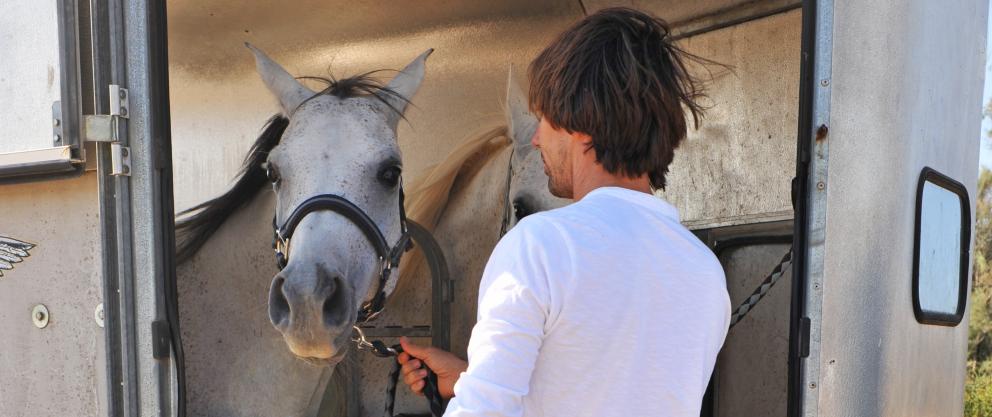You are here
Equine Biosecurity Basics

As a horse owner, when you take custody and control of a horse or herd of horses, you also take on the responsibility of caring for the health and well being of that animal. In addition, your obligations extend to the equine community that surrounds you at home and that you become part of when you travel to equine events. Your actions, or inactions, may have far reaching effects because a number of equine diseases are highly transmissible.
Here are some common sense tips that will help you fulfill your obligations to your horses, horses in your care and the equine community at large:
- Avoid travel with your horses if you suspect (or know!) they have an infectious disease.
- Avoid travelling with a horse(s) that may have been exposed to an infectious disease until you can be sure they are disease free (2-3 weeks). Discuss with a veterinarian whether they pose a disease transmission risk prior to exposure to other horses.
- In the event of a disease outbreak at a commingling site, such as a stable, do not allow horses to leave or new horses to arrive until the disease has been eliminated or tightly controlled with a quarantine or isolation program and a veterinarian has given the ALL CLEAR.
Summary for an Effective Biosecurity Program: Access Management
- Control access to your farm, barn and animal areas at critical points
- Quarantine new arrivals to your farm, facility, or operation
- Manage visitor risk
- Minimize the risk you pose as a visitor to other facilities, events and farms
Summary for an Effective Biosecurity Program: Animal Management
- Quarantine new animals for a minimum of 2-3 weeks
- Participate in traceability programs
- Handle healthy animals before sick animals as routine practice
- Establish a disease response plan with your veterinarian
- Keep a health record for each animal
- Get veterinary advice about vaccination protocols for your horse(s)
- Isolate sick animals as soon as possible and consult your veterinarian for appropriate diagnosis and treatment
Summary for an Effective Biosecurity Program: Operational Management
- Communicate biosecurity program effectively with clear visible signs
- Control pests and pets
- Encourage use of personal protective equipment (PPE)
- Clean and disinfect equipment prior to and after use
- Maintain good animal husbandry
In the event your horses contract an infectious disease:
- Consult your veterinarian for diagnosis and medical treatment,
- Isolate and restrict access to sick animals, and
- Advise recent visitors to your property of an outbreak and advise them to monitor their own animals for signs of disease
Additional Resources:
University of Guelph Equine Guelph Biosecurity
